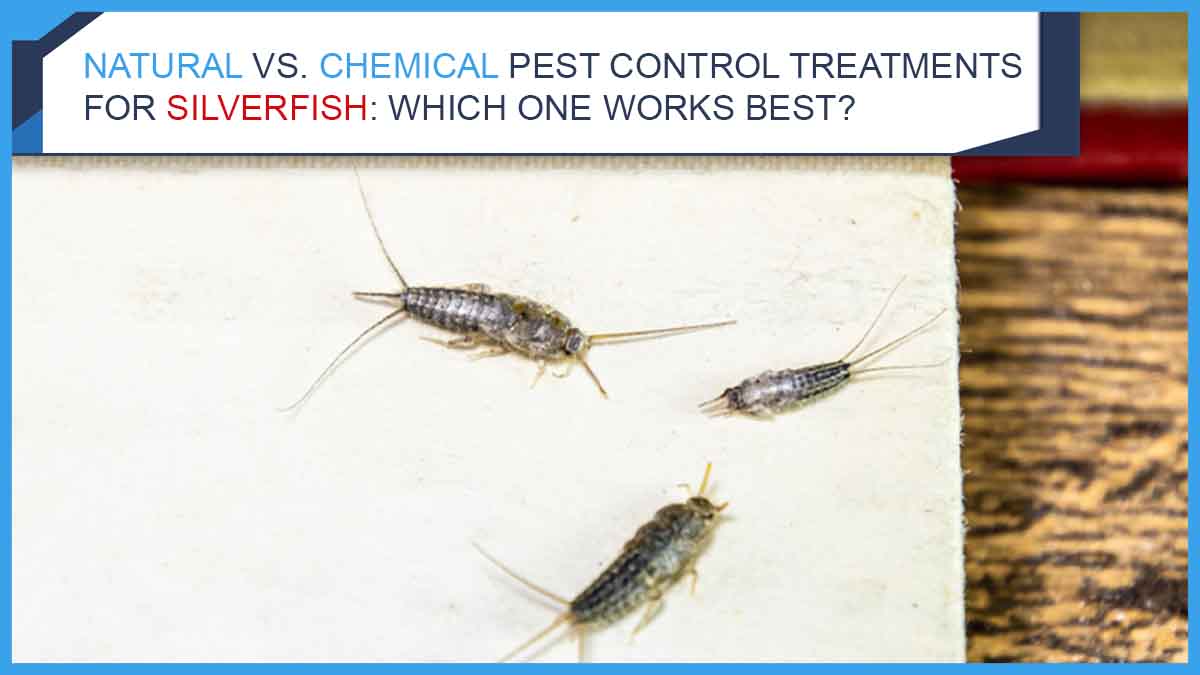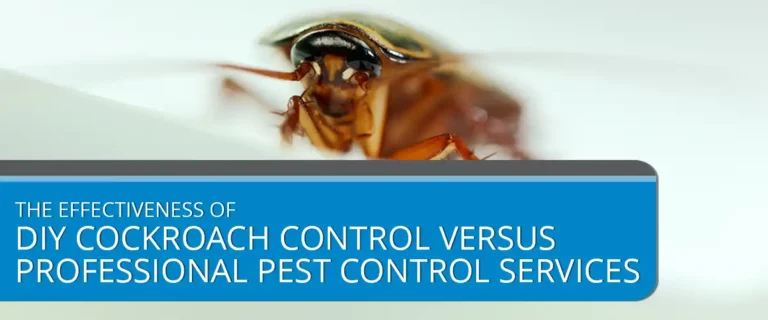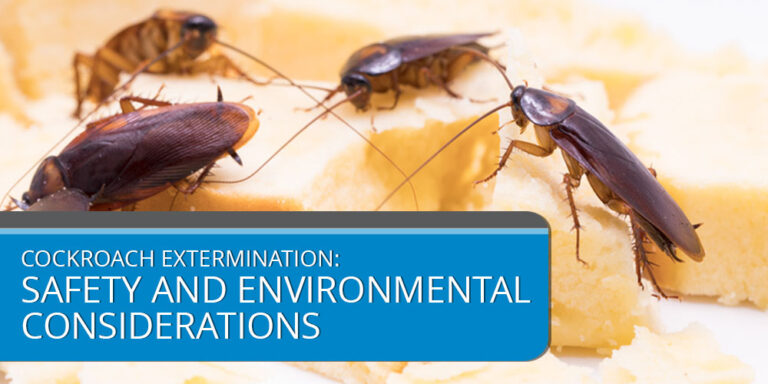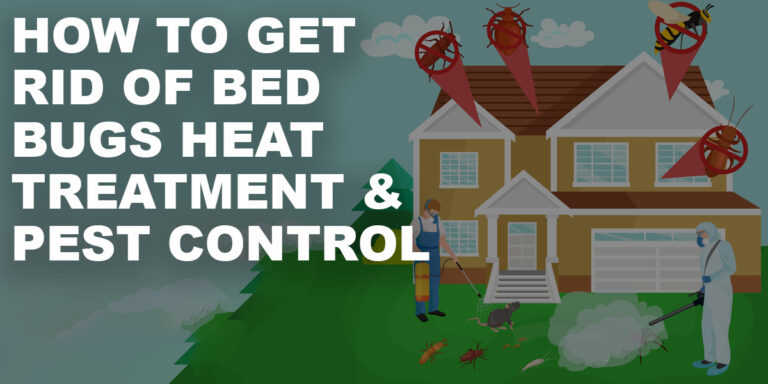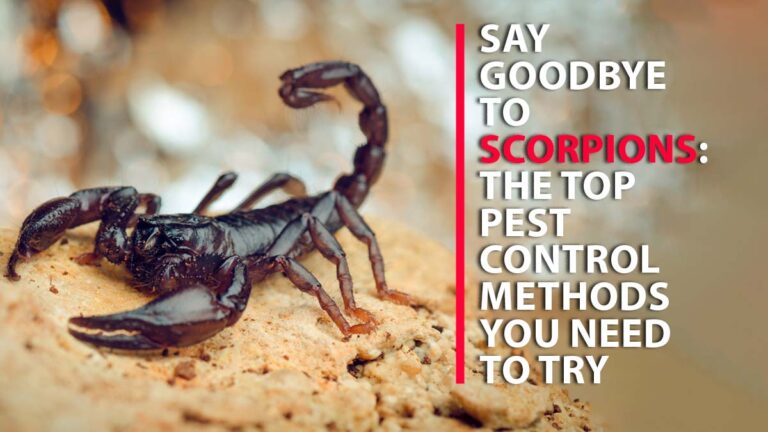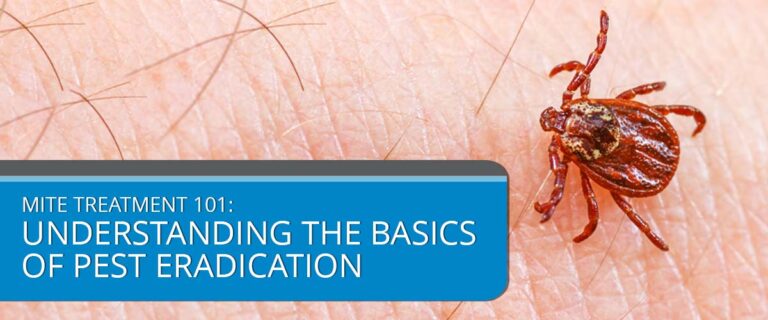Natural vs Chemical Pest Control Treatments for Silverfish: Which One Works Best?
Are you tired of finding those creepy silverfish crawling around your home, wreaking havoc on your books and papers? If so, you’re not alone. Silverfish infestations can be a nuisance, and many homeowners are searching for effective pest control treatments.
Silverfish are small, wingless insects typically found in damp and humid environments. They are known for their distinctive appearance, silvery-blue color, and long, slender shape. Silverfish can be a nuisance despite their harmless nature when they invade homes and harm household possessions like books, clothing, and wallpaper. This article will discuss the various silverfish pest control methods and their efficacy.

Why are Pest Control Treatments Important?
Pest control treatments are essential to prevent and manage silverfish infestations. Infestations can cause damage to personal items and can also be unsightly. Moreover, some people can develop sensitivities to silverfish, leading to respiratory problems. Therefore, taking action against silverfish infestations is essential as soon as possible.
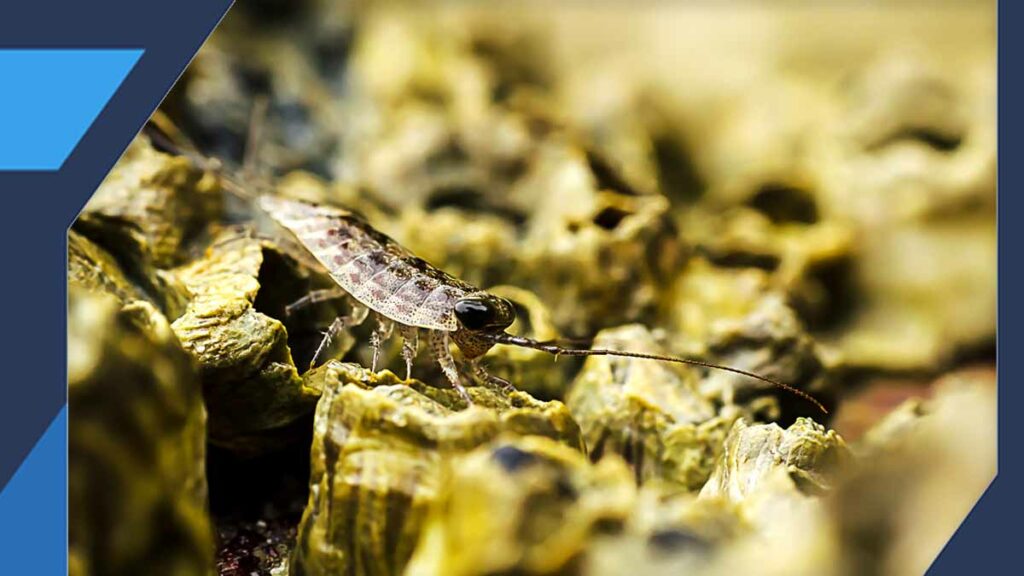
What are Natural Pest Control Treatments?
For those who prefer to avoid chemical remedies, natural pest control methods can be an effective alternative for silverfish treatment. From essential oils to sticky traps, several natural solutions exist. The following are the tried and tested methods to help you maintain a pest-free environment while minimizing harm to your health and the environment.

1. Essential Oils for Silverfish Treatment
Lavender, peppermint, and cedarwood essential oils, among others, effectively repel silverfish. These oils obliterate the aroma of food and other attractants, making it more difficult for silverfish to locate food and water sources. Additionally, these oils have a strong smell that is unpleasant to silverfish.
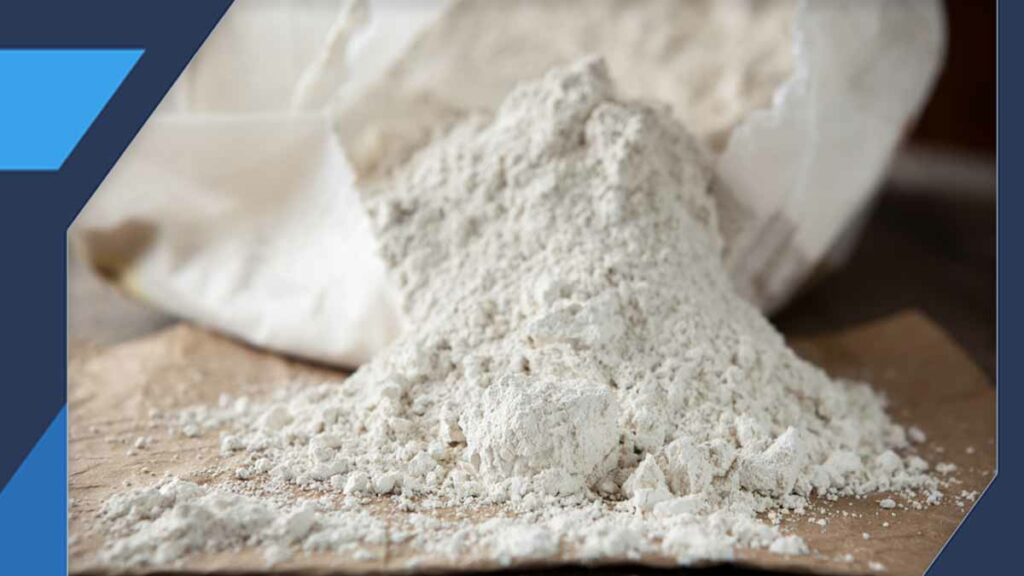
2. Diatomaceous Earth
Humans process the fossilized remains of diatoms to create a fine powder called diatomaceous earth. It functions by collecting moisture and oil from insects’ exoskeletons, causing them to get dehydrated and perish. Although diatomaceous earth is typically safe for people and animals, handling it with caution and appropriate protective gear is essential.

3. Traps
Traps are an effective way to control silverfish populations. They work by luring silverfish into a sticky or adhesive substance that prevents them from escaping. Several types of traps are available, including pheromone and sticky traps. You can easily use these traps by placing them where silverfish are likely present.

4. Other Natural Remedies
Numerous more organic treatments help keep silverfish away. Natural remedies for silverfish repulsion include boric acid, cedar shavings, and citrus sprays. These substances mask the scent of food and other attractants or cause dehydration in silverfish.
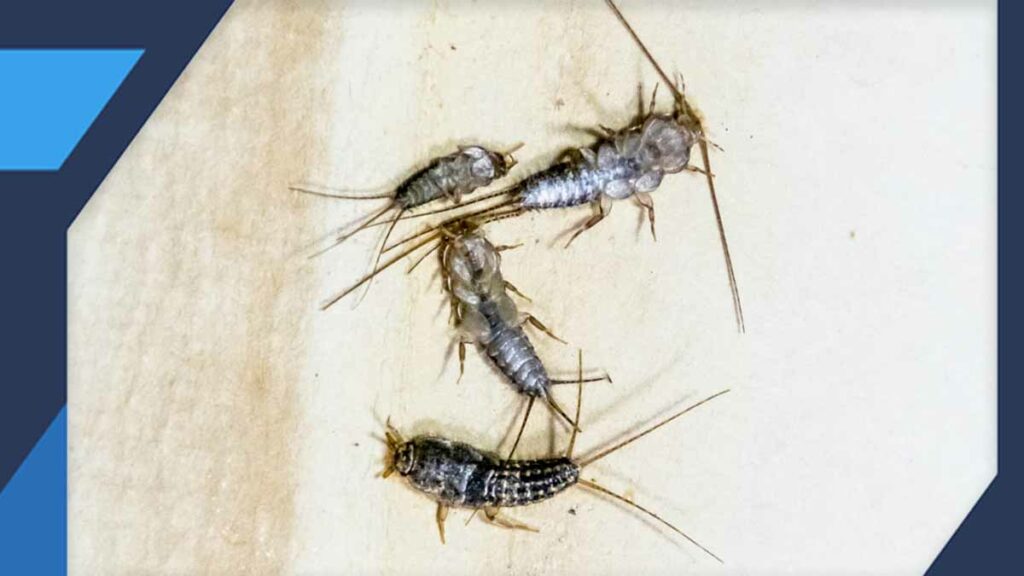
What are Chemical Pest Control Treatments?
Chemical pest control treatments can be an effective way to eliminate silverfish infestations. However, before employing them, weighing the advantages and disadvantages is crucial. Here are the most common chemical pest control treatments for silverfish, and the following are the things you should know about them.

1. Insecticides
Insecticides are chemicals that kill insects on contact. Liquid, powder, or aerosol forms are available for use. Insecticides disrupt the insects’ nervous system, leading to paralysis and death. Many insecticides are available, including pyrethroids, organophosphates, and neonicotinoids. Some insecticides are more toxic than others, and some can have a residual effect, which indicates that they keep killing insects for several weeks after application.

2. Fumigation
Fumigation is when a space is sealed and filled with a gas or vapor toxic to pests. A professional pest control company usually does it. Fumigation can be adequate for large infestations or hard-to-reach areas. However, not doing it can make fumigation dangerous. Evacuating the site before fumigation and taking special precautions to prevent human exposure to the gas is necessary.

3. Other Chemical Remedies
Chemical treatments, such as pesticide dust and liquid sprays, are available for silverfish control. These treatments work by coating surfaces with a toxic chemical to silverfish. They can be effective, but they also come with some risks. Moreover, humans and pets can inhale pesticide dust quickly, and liquid sprays can leave toxic residues.

What Should You Consider When Choosing a Treatment?
Choosing the proper treatment for silverfish control can be overwhelming, with various factors to consider. To help make the decision easier, here are the essential considerations when selecting a remedy. These are the top considerations to factor in.

1. Severity of Infestation
How bad the infestation is will determine the type of treatment needed. A small infestation may be easily controlled with natural remedies, while a more significant infestation may require chemical treatments.

2. Presence of Children or Pets
Children or animals may be present in the house; it is essential to choose a safe treatment. Natural therapies are generally safer than chemical treatments, but some natural remedies can still be toxic to pets.

3. Health Concerns
If you or anybody in your family is experiencing respiratory troubles or other medical conditions, it is essential to choose a treatment that will not exacerbate these problems. Chemical treatments can be especially problematic for people with respiratory issues, as they can cause irritation and inflammation.

4. Environmental Impact
Choosing an environmentally friendly treatment that will not harm the ecosystem is essential. Natural remedies are generally more environmentally friendly than chemical treatments, but some natural remedies can still be harmful if misused.

Choose the Right Solution!
Conclusively, silverfish can be a nuisance and cause damage to your belongings, but effective pest control treatments are available. Natural therapies such as essential oils, diatomaceous earth, traps, and other remedies can effectively control silverfish. One should take precautions when using chemical treatments such as insecticides and fumigation. When choosing a treatment, consider the severity of the infestation, the presence of children or pets, health concerns, and environmental impact.
Additionally, preventive measures such as regular cleaning and maintenance, sealing entry points, and reducing moisture levels can help prevent silverfish infestations. By following these tips, you can keep your home silverfish-free.

